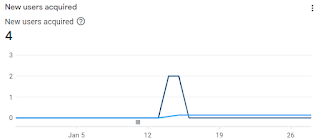My First Game Release
The Release of SlingStar
It has been a long year and I have learned a ton about Game Development in the process. First and foremost I finished a project that released onto multiple platforms.
SlingStar started as an idea from the Ask Gamedev 100 beginner indie dev tips video. Someone said something like: [I couldn't find the exact source here]
"For your first game, come up with an idea you think you can bring to completion in a week, it will take you two months."
This in conjunction Hugh Monahan of Stellar Jockeys' advice of:
"Finish something first, even if it's the tiniest thing, make something and bring it all the way through. Meaning something that is; distributed, other people are playing it, and if you're gonna sell it, sell it."
Brought me to begin development on SlingStar and attempt to (now, successfully), bring it to market on a mobile platform (Google Play Store) and the Steam marketplace, the game is also totally free to play in browser at its itch.io page.
It started with the simple idea of shooting a spaceship into a goal and having to adjust shots based on gravitational pulls of planets and other celestial obstacles. This was actually easy enough and the prototype was finished in about a week. I had a few levels laid out and I thought they taught the mechanics of the game pretty well, however simple it was.
For those who care, I work full time and move around quite a bit for my job. So this makes development of games pretty difficult and sometimes when working on more tedious tasks in my projects it can make it downright grueling. For these reasons a game with 20 levels with a simple enough premise took me over a year to create. I would have to say, however, in terms of actual hours put into the game the number is surprisingly low. I would say that the final game build/release would actually only take about 3-4 months or so to complete IF I was working full time ~45 hour weeks, which is not a luxury I possess at the current time.
For those of you who are curious about performance and release statistics, I would say, that mobile marketplaces are not worth your time, UNLESS you have an audience already that would play your game. Remember this is my experience, but what I think, is that the app marketplaces are filled with people who really couldn't care less about video games, casual or otherwise. Steam and itch.io on the other hand are game focused media outlets, so without further adieu, here are the statistics on how my hypercasual game, SlingStar did.
Google Play Store (time since release: 2+weeks):
Google Play Store (time since release: 2+weeks):
Daily Active Users : 0!
Installed audience: 3 (literally just my friends and one individual from my twitter community)
Summary: this is just my experience, but I don't think these numbers are going to go up any higher to be honest
Steam Marketplace (I'm unsure how much I can share because of a disclosure agreement with Steam but here we go, I am gonna keep the numbers vague):
The game was released on 27 JAN
Daily Active Users: 30+
Total Installed Audience: 40+
Reviews of the game: 4 All of which have been thumbs up, with some replies from Russia, I'm unsure if they are all legitimate reviews but exciting nonetheless.
Itch.IO: Here is the analytics tab of SlingStar's page. SlingStar has always been a free to play WEBGL build so it was always playable in browser. It really didn't get much attention as my Ludum Dare gamejam entries have received countless more attention/impressions than my full release's numbers.
Learning Points:
1) Marketing is HARD: Anyone who has ever released anything will tell you how important it is to get people at least moderately interested in what you're going to put out. Convincing someone to click on that twitter link is honestly more difficult than making the entire game. I still have a lot to learn in this regard but what I DO know is that on twitter, people are visual creatures. You need to show off some graphics to entice people to at least click to check out your game. Also I've found that giving attention to other peoples games in the community and helping others with promotion only brings good things your way.
2) Every release platform is different. Steam requires a 2 week "Coming Soon.." waiting period before you can release your game, so I would say as soon as you have some appealing visual screenshots and titles etc of your game, MAKE THE STEAM PAGE. It doesn't hurt, and it's pretty tedious at times, but it means that once your build is ready, you can focus on promotion and release anytime you like after that. There is a sweet spot I'm sure of promoting the steam page to when you actually release the game. But PR is a full time job and if you are anything like me, trying to promote something is a complete foreign language to me.
3) Underscoping is a godsend. Trying to build something barebones teaches you what you can do with a little bit of design knowhow and some trial and error. It cannot be overstated how important I think it is to keep your scopes small for your first release. I realize now more than ever why that is.
If anyone has any questions please don't hesitate to shoot me an e-mail or leave a comment, I would love to hear about some other first-time-developer's experiences with releasing a game.
Until next time,
JP.







Comments
Post a Comment